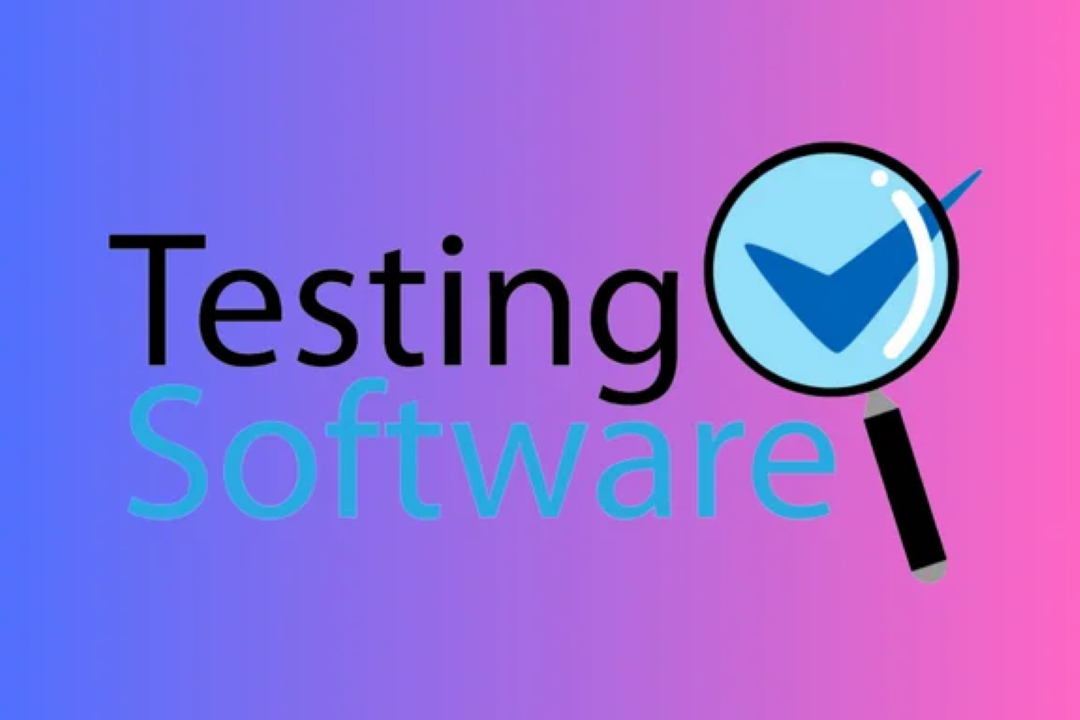selenium webdriver with c Course
Selenium WebDriver with C# is a powerful framework used for automating web applications for testing
selenium webdriver with c Course
The Selenium WebDriver with C# course at JustAcademy is designed to empower individuals with the essential skills needed for automated web application testing. By mastering this powerful framework, participants learn to write robust test scripts using C#, streamlining the testing process and enhancing software quality. This course provides hands-on experience with real-time projects, enabling students to understand best practices in automation, CI/CD integrations, and cross-browser testing. With the growing demand for reliable software, the ability to automate testing processes using Selenium WebDriver with C# is invaluable for anyone looking to excel in the field of software development and quality assurance.
To Download Our Brochure: https://www.justacademy.co/download-brochure-for-free
Message us for more information: +91 9987184296
The Selenium WebDriver with C# course at JustAcademy is designed to empower individuals with the essential skills needed for automated web application testing. By mastering this powerful framework, participants learn to write robust test scripts using C#, streamlining the testing process and enhancing software quality. This course provides hands on experience with real time projects, enabling students to understand best practices in automation, CI/CD integrations, and cross browser testing. With the growing demand for reliable software, the ability to automate testing processes using Selenium WebDriver with C# is invaluable for anyone looking to excel in the field of software development and quality assurance.
Course Overview
The “Selenium WebDriver with C# Course” at JustAcademy offers a comprehensive introduction to automated web application testing using the Selenium framework in conjunction with the C# programming language. This course covers essential concepts such as setting up the testing environment, writing effective test scripts, and implementing best practices for automation. Participants will gain hands-on experience through real-time projects, enabling them to efficiently perform tests across different browsers and platforms. By the end of the course, students will be well-equipped to enhance software quality and reliability through effective automation techniques, making them valuable assets in the field of software development and quality assurance.
Course Description
The “Selenium WebDriver with C Course” at JustAcademy is designed to equip learners with the skills needed to automate web applications using the Selenium framework paired with the C programming language. This course covers key topics such as setting up a Selenium environment, developing robust test scripts, handling different web elements, and executing automated tests across various browsers. Through engaging real-time projects, participants will gain practical experience that reinforces their understanding of automation testing, enabling them to improve application quality and efficiency. By the end of the course, students will possess the expertise to contribute effectively to software testing and development teams.
Key Features
1 - Comprehensive Tool Coverage: Provides hands-on training with a range of industry-standard testing tools, including Selenium, JIRA, LoadRunner, and TestRail.
2) Practical Exercises: Features real-world exercises and case studies to apply tools in various testing scenarios.
3) Interactive Learning: Includes interactive sessions with industry experts for personalized feedback and guidance.
4) Detailed Tutorials: Offers extensive tutorials and documentation on tool functionalities and best practices.
5) Advanced Techniques: Covers both fundamental and advanced techniques for using testing tools effectively.
6) Data Visualization: Integrates tools for visualizing test metrics and results, enhancing data interpretation and decision-making.
7) Tool Integration: Teaches how to integrate testing tools into the software development lifecycle for streamlined workflows.
8) Project-Based Learning: Focuses on project-based learning to build practical skills and create a portfolio of completed tasks.
9) Career Support: Provides resources and support for applying learned skills to real-world job scenarios, including resume building and interview preparation.
10) Up-to-Date Content: Ensures that course materials reflect the latest industry standards and tool updates.
Benefits of taking our course
Functional Tools
1 - Selenium WebDriver: This is the core tool utilized in the course, designed for automating web applications for testing purposes. Selenium WebDriver provides a programming interface to create and execute test scripts for various browsers. It allows testers to interact with web elements in a natural way, enhancing the accuracy and reliability of automated tests. With its support for multiple programming languages, including C#, students learn to leverage the power of Selenium WebDriver to write efficient and maintainable test scripts.
2) C# Programming Language: As the primary programming language for this course, C# is critical for writing Selenium test scripts. Students are introduced to essential programming concepts such as object oriented programming, data types, and control structures. C# provides a solid foundation for building complex test cases and automation frameworks, making it easier for students to integrate testing logic with business requirements. By mastering C#, students empower themselves with a highly sought after skill in the job market.
3) Visual Studio: This integrated development environment (IDE) is utilized throughout the course for writing and debugging C# code. Visual Studio offers numerous features, such as IntelliSense, which provides code suggestions and helps students to write code more efficiently. The in built debugging tools enable learners to identify and fix issues in their test scripts quickly. By the end of the course, students will feel comfortable navigating Visual Studio, enhancing their overall development experience.
4) TestNG: Although primarily associated with Java, TestNG is introduced in the course to demonstrate test strategy and design principles. TestNG offers rich annotations and an easy to use framework to organize tests, ensuring that students understand test management fundamentals. Students will learn how to implement features like parallel testing, test prioritization, and data driven testing. Familiarity with TestNG principles helps bolster their testing knowledge and promotes best practices in automation testing.
5) MSTest Framework: This is a testing framework specifically designed for C# applications, and it serves as an alternative to TestNG. Students explore MSTest for creating, running, and publishing test cases. The framework simplifies the testing process while allowing for the integration of tests with continuous integration/deployment pipelines. By learning MSTest, students gain insights into organizing test cases and generating reports, enhancing the effectiveness of their test automation efforts.
6) Git and GitHub: Version control is essential in collaborative software development projects, and this course incorporates Git and GitHub to teach students best practices in code management. Students learn how to use Git for tracking changes, managing branches, and collaborating with other developers. GitHub serves as a platform for hosting repositories, facilitating the sharing of code, and enabling version control collaboration. This knowledge ensures that students are prepared for real world development environments where team collaboration is key.
7) Browser Developer Tools: Understanding browser developer tools is crucial in the context of web automation. Students are taught how to use these tools to inspect web elements, understand their properties, and troubleshoot issues with their scripts. Familiarity with developer tools enhances students' ability to identify locators for automation, improving the accuracy of their tests. Learning to navigate and utilize browser developer tools is a key skill for any aspiring automation tester.
8) Page Object Model (POM): This design pattern is integral to creating scalable and maintainable test automation suites. Students will learn how to structure their test code using POM, separating the representation of web pages from test scripts. This separation fosters better reusability of code and eases the maintenance of tests when there are changes in the application. By implementing POM, students will be able to write cleaner, more organized test cases that are easier to manage.
9) Continuous Integration/Continuous Deployment (CI/CD): The course introduces CI/CD concepts and tools, demonstrating how automated testing fits into the software development lifecycle. Students learn to integrate their Selenium tests into CI/CD pipelines using tools like Jenkins or Azure DevOps. This knowledge equips them with the skills to ensure that their tests run automatically with every build, facilitating quicker feedback on code changes and improving overall software quality.
10) Handling Dynamic Web Elements: Real world applications often include dynamic content, which can pose challenges for automation. Students are taught techniques to effectively interact with dynamic web elements, such as waiting strategies (implicit and explicit waits) and identifying elements by different properties. Mastering these techniques prepares students to tackle common challenges in web automation and ensures their tests can handle dynamic changes effectively.
11 - Data Driven Testing: This key testing technique allows students to run the same test with different inputs and validate multiple outputs. The course covers how to implement data driven testing using data sources such as Excel files, CSVs, or databases. By understanding this approach, students can enhance their test coverage and ensure their applications function correctly across various scenarios and datasets.
12) Error Handling and Logging: Robust error handling is essential for effective automated testing. Students learn how to implement error handling in their test scripts to gracefully manage exceptions and issues that arise during test execution. The course also covers logging best practices, enabling students to capture test execution details and results, which aids in debugging and tracking test history.
13) Mobile Testing with Appium: To broaden their automation skills, students are introduced to mobile testing through Appium, an open source tool for automating mobile applications. They learn how to set up Appium and write test scripts for both Android and iOS applications. This experience equips learners with the ability to tackle mobile automation challenges, expanding their career opportunities in the growing mobile application market.
14) Reporting and Analytics: Understanding how to generate test reports is critical for communicating results to stakeholders. The course emphasizes creating comprehensive reports that provide insights into test execution outcomes, including passed and failed tests, error details, and execution duration. Students learn to use reporting tools like Allure or ExtentReports, enhancing their ability to present testing results effectively.
15) Collaboration Tools and Agile Methodologies: The course incorporates an understanding of Agile practices and collaboration tools like JIRA and Confluence. Students will learn how to work within Agile teams, contributing their test automation skills to ensure timely and efficient delivery of software projects. Familiarity with Agile methodologies prepares students for real world environments where fast paced development and iteration are commonplace.
16) Introduction to Artificial Intelligence in Testing: As technology evolves, integration with AI has become crucial in testing. This course introduces how AI can aid in test automation, explore tools that offer intelligent test suggestions, and discuss how machine learning can be used to predict flaky tests and optimize testing processes. This forward thinking approach prepares students for the future landscape of automation testing.
17) Career Development and Resume Building: In addition to technical skills, the course emphasizes career development through resume building, interview preparation, and soft skills enhancement. Students learn how to effectively present their skills and projects undertaken during the course, positioning themselves as competent candidates in the job market. This holistic approach ensures they are job ready upon completion.
18) Project Work and Real Time Scenarios: The culmination of the learning experience is project work where students apply their acquired skills to real world scenarios. This hands on project allows them to design and execute a complete automation test suite from scratch, incorporating everything they have learned. The project serves as a portfolio piece, showcasing their practical knowledge to potential employers.
Browse our course links : https://www.justacademy.co/all-courses
To Join our FREE DEMO Session:
This information is sourced from JustAcademy
Contact Info:
Roshan Chaturvedi
Message us on Whatsapp:
Email id: info@justacademy.co
best React Native styling framework












